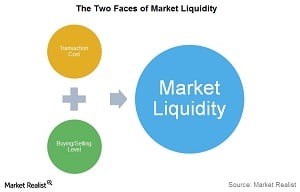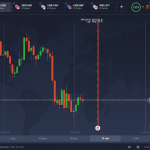
The spot market is one in which the value of financial assets is paid in cash (spot price) at the time of delivery. That is why this market is also known in the trading enviroment as “cash market” or “physical market”. Its transactions are made in the short term, so it is a highly liquid marketplace with large and small participants..
A trader or investor can trade on the spot market from anywhere that has the necessary infrastructure to carry out transactions. That is why the Internet is now the main support for this type of transactions.
The most famous spot markets are the Forex spot markets and commodities spot markets. In the latter group includes financial assets such as precious metals, sugar, natural gas, grain or oil. In the case of oil, even if payments are made at the spot price, the delivery of the product is performed about a month later.
This marketplace allows ample speculation, since it is based on the buying/selling of financial assets according to their price. Therefore, the potential gains are as many as the risk involved. So to venture into these markets is also important to know the market well, have a lot of information, have a good ability to analyze and act quickly to get ahead of other investors. Any good trader also knows how to control his emotions, he is patient and does not rush carried away by impulses or the fear of losing. If these capabilities are not met, the trader should contemplate other markets with less risk for investing.
Types of spot markets
These markets can be classified into different types depending on their organization:
- Stock markets: financial instruments and commodities traded in a totally organized market in which contracts and transactions must be performed in accordance with established rules and regulations: for example, volume and maximum duration of the contract.
- Over The Counter (OTC): In the OTC trading contracts are made directly between two parties without being subject to the rules of an exchange. The agreements reached between the two parties may or may not follow existing standards in other markets, for example, the price of buy/sale agreed between the parties may not be made public. Currently Forex is one of the largest spot markets in the world (see the article about the Forex market) and includes the participation of individuals and companies across the globe as there are exchanges of one currency to another constantly.
The price on the spot market
Another feature of the spot market as well as immediate delivery, is that the buy/sale price of the asset in the trading contracts are set by the market price at the time of conclusion of the contract and not the current prices at the time of delivery.
The price on the spot market is affected primarily by supply and demand, making the prices generally more volatile, while the price in the futures market is affected by other factors such as storage costs and future movements in the price.
In the price of non-perishable products, for example gold, in addition to the supply and demand may influence other speculative factors that reflect expectations about future supply and demand. However, in perishable products, such as corn, the price on the spot market is determined almost exclusively by supply and demand. For example, if there is a surplus of tomatoes in July, the price of tomatoes in the spot market go down but an investor can not buy tomatoes in June at a low price for delivery in September which can be done in the futures market.






